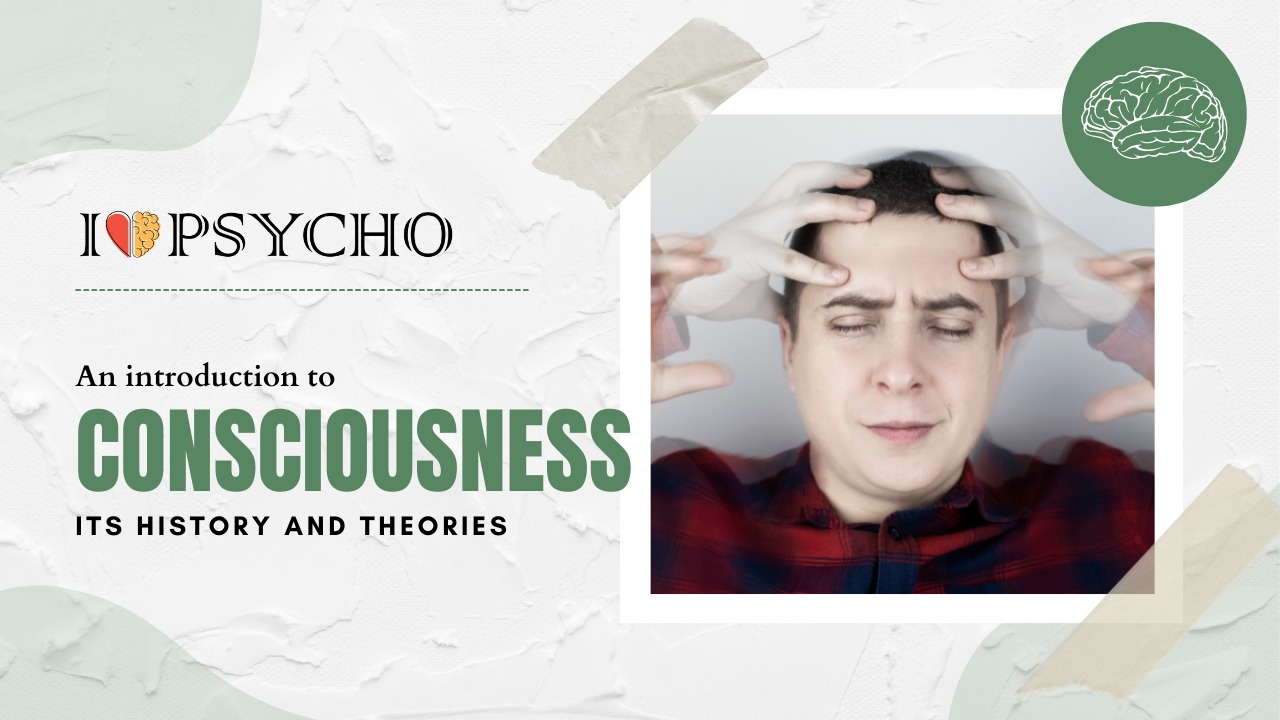Consciousness is defined as a person’s awareness of their surroundings, thoughts, feelings, or sensations; to experience consciousness, one must be awake and aware at the same time. Your understanding about yourself and the environment around you is referred to as consciousness. This insight is personal to you. If you can put what you’re feeling into words, it’s a part of your consciousness.
Awareness is the characteristic or the condition of being conscious of an external object or something, such as ideas, feelings, memories, or feelings. Sentience, consciousness, subjectivity, capacity for experiencing and feeling, alertness, sense of oneself, and the executive control system of the mind are defined in the following ways. Many scientists at one point viewed consciousness with skepticism, but it has become a major area of psychological and neuroscience study in the last years.
What is Being Conscious?
Your conscious experiences vary and change on a regular basis. For instance, you might be focused on reading this article at one point. The focus of your attention may then transfer to a chat you had with a co-worker earlier in the day. Following that, you may become aware of how uncomfortable your chair is, or you may be daydreaming about dinner.
This constantly altering stream of thoughts can shift radically from one moment to the next, but your experience of it appears to be smooth and uncomplicated.
Various States of Consciousness
Changes or shifts in awareness can be caused by a number of factors. Some of these are caused by things like drugs or brain damage, while others are the outcome of those things. Perception, reasoning, understanding, and interpretations of the world can all be affected by changes in consciousness.
The following are examples of various states of consciousness:
- Dreams
- Hypnosis
- Sleep
- Meditation
- Psychoactive substance-induced states
- Hallucinations
Altered states of consciousness
Consciousness and unconsciousness are the two typical states of awareness. Alterations in consciousness can also arise as a result of medical or mental illnesses that impede or affect awareness.
The following are examples of altered states of consciousness:
- Coma
- Confusion
- Disorientation
- Delirium
- Stupor
- Lethargy
Different assessments are used by doctors and healthcare workers to test and assess levels of consciousness. The results of these tests may be used to help determine a diagnosis and treatment.
History of Consciousness
Thousands of years ago, philosophers were primarily responsible for studying human consciousness. The concept of mind-body dualism, or the idea that the mind and body are separate but interact, was first introduced by the French philosopher Rene Descartes.
The study of conscious experience became one of the first areas investigated by early psychologists once psychology was formed as a discipline independent from philosophy and biology.
To examine and record conscious feelings, thoughts, and experiences, structuralists utilized a technique called introspection. The contents of their own minds would be scrutinized by trained observers. Obviously, this was a highly subjective procedure, but it did serve as a catalyst for additional research into the science of human conscious level.
Consciousness, like a stream, is unbroken and continuous despite ongoing shifts and changes, according to American psychologist William James. Sigmund Freud, a psychoanalyst, was interested in how the unconscious and conscious minds interact.
Although the focus of much of psychological study in the first half of the 1950’s was on solely observable behaviors, research on human conscious levels has evolved considerably since.
Theories of Consciousness
Developmental, cultural, neurological, computational, and moral views all play a role in consciousness theories.
John Locke’s Thoughts
A 17th-century philosopher named John Locke was one of the first to discuss and write about consciousness. He believed that our individuality was intertwined with our conscious level, which he described as “what goes on in a man’s mind or memory.” He also said that our awareness is not bound by our physical bodies and that it can exist after they die. Indeed, according to Locke, awareness might be transmitted from one soul to another.
René Descartes’ Theory
In the 17th century, René Descartes addressed the concept of consciousness. He set out to discover how human consciousness, which is a non-physical entity, might arise from our bodies, which are physical entities. Cartesian dualism was his answer; in short, awareness exists in an immaterial domain he termed res cogitans (the realm of thought), as opposed to the material sphere he called res extensa (the realm of things) (the realm of extension). He theorized that the interplay between these two realms takes place within the brain.
Sigmund Freud’s Theory
While Eastern viewpoints on consciousness have remained largely consistent over time, the Western perspective has become defined by changes in theory. Sigmund Freud, a medical practitioner and the originator of psychoanalysis theory, is one of the most widely accepted Western theories. The conscious, preconscious, and unconscious states of consciousness were identified by Sigmund Freud. All of these levels are related to and intersects with Sigmund Freud’s id, ego, and superego. All of the things we are aware of, including things we know about ourselves and our environment, are included on the conscious level.
The preconscious is where many memories are stored for quick retrieval, and it contains items we may pay conscious attention to if we so wished. The preconscious, according to Sigmund Freud, is made up of thoughts that are unconscious at the time, but are not repressed, and hence are recallable and easily capable of becoming conscious (for example, the tip-of-the-tongue effect). The unconscious is made up of things that exist outside of our conscious awareness, such as memories, ideas, and urges that we aren’t aware of.
Most of the things that are kept in the unconscious are considered unpleasant or conflictive, such as sexual drives which are considered inappropriate. Although these factors are kept outside of our consciousness, they nevertheless influence our behaviour.
While the concept of consciousness has piqued the interest of philosophers and scientists for thousands of years, experts agree that we still have a long way to go in our understanding of it. Researchers are still looking into the various grounds of consciousness, such as the physical, social, cultural, and psychological factors that influence our conscious awareness.
References-
Cherry, K. (2020, May 13). What Is Consciousness? Verywellmind.









